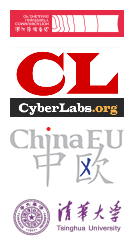The road to development and prosperity of 5G--how to cope with the new challenges of technology, security and ideology
Communication University of Zhejiang/CyberLabs/ChinaEU/Tsinghua University

Session 214
With the promotion and implementation of China's "goal of completing 5G commercialization by 2020", the three major Chinese Telecom operators have defined the 5G commercial deployment and formally identified the first 19 5G network coverage cities. From the point of international respect, the United States, Europe, Japan and Korea are also actively promoting 5G network construction and commercial use. In-depth interaction between 5G technology and vertical field will not only drive the whole society to change imperceptibly, but also make high-speed connection between people and things, people and people, things and things through 5G network in the context of all things connected by 5G+Internet of Things. This also increases the probability of being attacked by hackers and malicious code, and has a fatal impact on mobile office security, sensitive data, and even national infrastructure. At the same time, while facing the upgrading of traditional risks such as technical vulnerabilities and network attacks, 5G also faces some derivative unknown risks, which are more harmful or uncontrollable. The technological characteristics of 5G determine the globalization of risk. Although the global digital divide still exists, the rapid development of network technology in the past decade has narrowed the gap in the field of network in most countries. However, in the face of the major risks of 5G, the experience of countries is basically at the same level, so the international collaborative governance will enter a new stage. Countries around the world should continue to uphold the concept of mutually beneficial symbiosis, seek global cooperation, explore the internationalized application of the three-layer governance framework for promoting the healthy development of 5G globalization. Over the years, we have been focusing on the research on the topic of "network governance system", and have formed a series of influential research reports and network governance models at the national strategic level.
Moderator
Luigi Gambardella, President, ChinaEU
Speakers/Panellists
Dr. Fang Xingdong, Director, Communication University of Zhejiang, China
Prof. Manual Castells, University Professor and Wallis Annenberg Chair in Communication Technology and Society, Annenberg School for Communication and Journalism, University of Southern California (USC)
Luigi Gambardella, President, ChinaEU
Jovan Kurbalija, Founding Director, DiploFoundation
Dr. Hui Cao, Head of Policy, Huawei Technologies, EU Public Affairs & Communication Office
Mr. Zhu Xuguang, Director, Communication University of Zhejiang, China
Session's link to WSIS Action Lines
-
 C2. Information and communication infrastructure
C2. Information and communication infrastructure
5G is the most important and future oriented technology for the whole world, if we can have a mutual agreement around the world on how to develop it, the whole society could benefit from it and the infrastructure building will also save a lot from it.
Session's link to Sustainable Development Process
-
 Goal 9: Build resilient infrastructure, promote sustainable industrialization and foster innovation
Goal 9: Build resilient infrastructure, promote sustainable industrialization and foster innovation
to Build resilient 5G infrastructure, and promote sustainable industrialization and foster innovation for the whole society